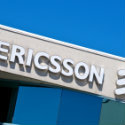
Ericsson has reported a healthy increase in revenues for the second (April-to-June) quarter thanks to favorable currency movements and demand for its 4G equipment in mainland China, despite continued weakness in North America's mobile broadband market.
The Swedish vendor also claimed that operating expenses were starting to fall and that its latest restructuring program would lead to further cost improvements in the second half of the year.
Net sales increased by 11%, to 60.7 billion Swedish kronor (US$7.09 billion), compared with the second quarter of 2014, while net income fell over the same period by 20%, to SEK2.1 billion ($245 million), but was far better than the figure of SEK1.5 billion ($175 million) Ericsson AB (Nasdaq: ERIC) reported in the first quarter. (See Ericsson Sinks on North American Slowdown.)
Q2 2015 | Q2 2014 | YoY change | |
Revenues | 60.7 | 54.8 | 11% |
−networks | 31.2 | 29.0 | 8% |
−global services | 26.4 | 23.1 | 14% |
−support solutions | 3.1 | 2.8 | 9% |
Gross income | 20.1 | 19.9 | 1% |
Gross margin | 33.2% | 36.4% | -3.2 percentage points |
Operating income | 3.6 | 4.0 | -11% |
Operating margin | 5.9% | 7.3% | -1.4 percentage points |
−networks | 8.0% | 8.0% | 0 |
−global services | 6.0% | 6.0% | 0 |
−support solutions | -8.0% | -13.0% | -5 percentage points |
Net income | 2.1 | 2.7 | -20% |
Source: Ericsson |
Ericsson's share price rose by around 5% during morning trading in Stockholm as investors took heart from the latest set of results.
The company flagged strong sales growth in all regions outside the Americas, Northern Europe and Central Asia and drew particular attention to its performance in China, which is currently witnessing something of a mobile broadband boom driven by the rollout of 4G networks. (See Forget 3G: China Mobile Is a 4G King.)
Revenues from North America -- which represents Ericsson's biggest market and accounts for nearly a quarter of overall sales -- fell by 4%, but Ericsson claimed that conditions were better than in the first three months of the year.
"We can only conclude that we have stabilized but are operating at a lower level," said Hans Vestberg, Ericsson's CEO, when asked whether the North American malaise would be drawn out during an earnings call with analysts. "The planned mergers haven't yet happened, the spectrum that has been auctioned is not yet available -- those have been the two industrial impacts on investment levels and when those are resolved we'll see more momentum in the market."
Ericsson has been able to report sales growth despite the difficult conditions in North America thanks largely to favorable foreign exchange effects: Its second-quarter revenues would have fallen by 6% compared with a year ago on a constant currency basis.
The company has also been hit by a licensing fracas with Apple Inc. (Nasdaq: AAPL) and said that revenues from intellectual property rights (IPR) had suffered due to the "ongoing dispute with a major customer." (See Apple, Ericsson Clash on LTE Patents.)
More encouragingly, its operating margin improved slightly to 5.9%, from just 4% in the first quarter, and Ericsson said it would have been 10.4% were it not for the impact of restructuring costs -- up from 7.7% in the second quarter of 2014.
Nokia Corp. (NYSE: NOK) reported an operating margin of 8.3% in the first quarter of 2015, while Alcatel-Lucent (NYSE: ALU)'s was just 2.5%. (See Nokia Slumps on Networks Malaise and Alcatel-Lucent Outperforms Rivals in Q1.)
Ericsson is trying to reduce annual expenses by SEK9 billion ($1.05 billion) by 2017, compared with costs in 2014, and earlier this year announced plans to cut more than 2,000 jobs in Sweden -- about 2% of its global workforce and 13% of its domestic employee base.
"The impact of reductions announced in Sweden will start to materialize in the second half but still we're starting to see early signs of operating expenses being reduced and that's important," said Jan Frykhammar, Ericsson's chief financial officer, during the company's earnings call.
Want to know more about 4G LTE? Check out our dedicated 4G LTE content channel here on Light Reading.
Ericsson provided little insight into the quarterly performance of divisions addressing "targeted growth areas" -- which include IP networks, cloud, OSS and BSS, TV and media and industry and society -- but did herald "strong development from the first quarter … driven by a solid sales development in OSS and BSS."
Vestberg has previously indicated that sales in the "targeted growth areas" rose by 10% in 2014 and today told analysts that consolidation in Europe could open up new opportunities in the future.
"In the long term it's positive because it creates stronger carriers investing in more things -- transforming their IT and doing media -- so that's exciting for us," he said.
Even so, the company is expected to come under much greater pressure in the IP networks area following Nokia's €15.6 billion ($17 billion) takeover of Alcatel-Lucent -- a move that will create a new-look business of equal size to Ericsson in revenue terms. (See Nokia Makes €15.6B Bid for Alcatel-Lucent.)
Despite its own financial difficulties, Alcatel-Lucent has built a strong reputation in the IP networks market and analysts have previously expressed concern that Ericsson might struggle here once Nokia's takeover goes through.
Earlier this week, Nokia CTO Hossein Moiin told Light Reading that he believed Nokia would be a "more complete player" than Ericsson following its acquisition of Alcatel-Lucent. (See AlcaLu Deal Makes Us 'More Complete' Than Ericsson, Says Nokia CTO.)
— Iain Morris, 

 , News Editor, Light Reading
, News Editor, Light Reading
About the Author(s)
You May Also Like



.jpg?width=300&auto=webp&quality=80&disable=upscale)








